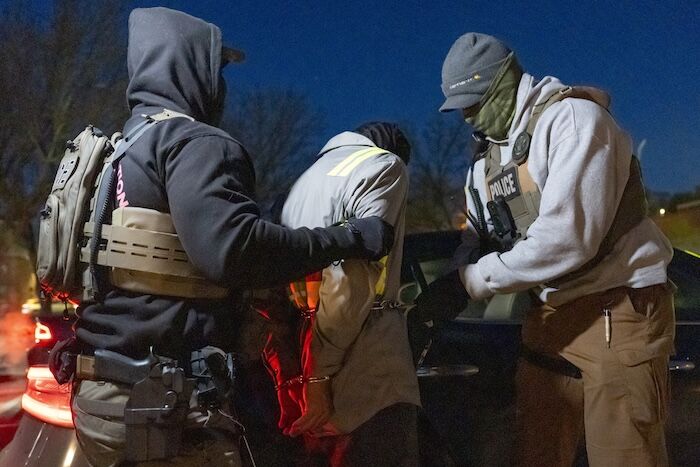Court overturns firearms conviction, finding Springs man lacked knowledge of felon status

A faulty jury instruction, a unique criminal sentence and a recent U.S. Supreme Court decision all prompted the federal appeals court based in Denver to overturn a Colorado Springs man’s firearms conviction on Thursday because he did not know of his felon status.
Although Demontrae Wilson had “entered the criminal big leagues” with a felony conviction as an adult, thus barring him from possessing a firearm or ammunition, a three-judge panel on the U.S. Court of Appeals for the 10th Circuit determined he did not understand he was prohibited because he served an alternative sentence in a youth facility.
“This is important and cuts against the idea that Mr. Wilson would have understood from the magnitude of the punishment he received for his offense that he was a convicted felon (i.e., subject to being punished by imprisonment for more than one year),” wrote Judge Jerome A. Holmes in the April 29 order.
Police used records from Facebook to link Wilson to a gun stolen from a Colorado Springs pawn shop in February 2018, and prosecutors charged him with three offenses related to firearm and ammunition possession, including possession by a felon. Jurors found him guilty on two counts, including the crime of possession of ammunition by a felon, and Wilson received a sentence of 96 months in prison.
Six months after his conviction, the Supreme Court issued a decision requiring the government, in order to prove someone guilty of unlawful possession, to show the defendant knows he possesses a firearm and also knows he is prohibited from doing so.
On appealing his conviction, Wilson consequently argued the trial court judge should have instructed the jury that possession by a felon meant Wilson had to know he had been previously convicted of a crime subject to at least one year’s imprisonment — a key element of the firearm offense. But because Wilson had not objected at the time, the 10th Circuit could only reverse the conviction if the oversight seriously affected the fairness or integrity of the trial.
Even with that hurdle, the appellate panel felt the jury may have reached a different conclusion had they been told to consider Wilson’s knowledge of his own status.
The “the sad truth,” wrote Holmes, “is that Mr. Wilson has displayed a proclivity for serious violent conduct, even as a juvenile; his record of juvenile adjudications clearly attests to this.”
As a minor, Wilson was adjudicated delinquent – the noncriminal, child equivalent of a conviction – for aggravated robbery with a fake pistol, and also for assault. However, it was his conviction as an 18-year-old that was most crucial: Wilson attempted to rob a 14-year-old boy while using a gun. For that crime, he received an eight year prison sentence.
But Wilson never served it. Instead, he spent four years in Youthful Offender Services, which is a detention facility for teenagers who commit violent felonies, with a focus on rehabilitation.
“There is significant reason to believe that Mr. Wilson might not have interpreted this sentence as one qualifying him a prohibited person or understood the effect of his juvenile convictions on his Second Amendment right to possess a firearm,” argued his attorney, R. Scott Reisch, to the 10th Circuit.
The government countered it was almost certain Wilson had heard from the judge in his attempted robbery case that his crime was punishable by more than one year in prison.
“The violent nature of Wilson’s prior crime, the eight-year sentence he received, the four-year youthful offender system sentence he served,” wrote the U.S. Attorney’s Office to the court, “all leave little doubt that Wilson knew his prior conviction was for ‘a crime punishable by imprisonment for a term exceeding one year.'”
Ultimately, the 10th Circuit sided with Wilson. Given his “unique” sentence, Holmes concluded, there is a “probability that a reasonable jury would not find that the violent nature of Mr. Wilson’s adult felony offense, standing alone, would have alerted him to the fact that he had entered the criminal big leagues and was now a convicted felon.”
The panel overturned his conviction for possession of ammunition by a felon. Representatives for Wilson and the government did not immediately respond to a request for comment.
The case is United States v. Wilson.













